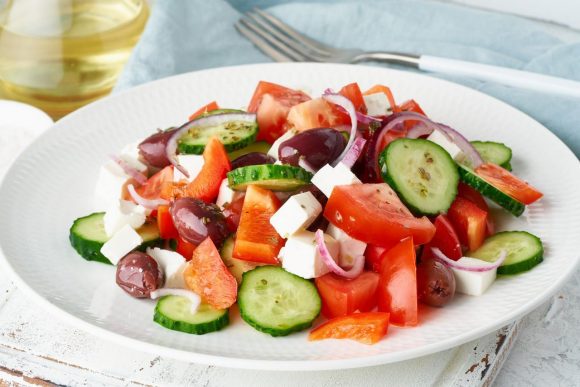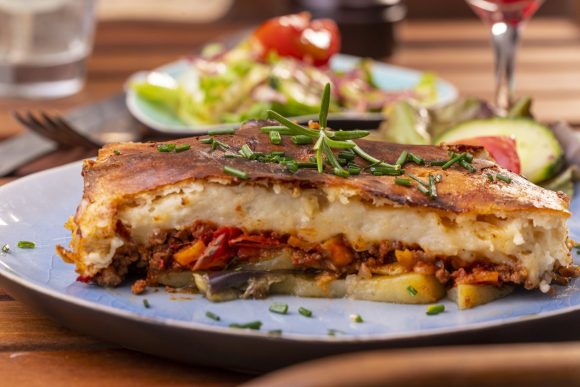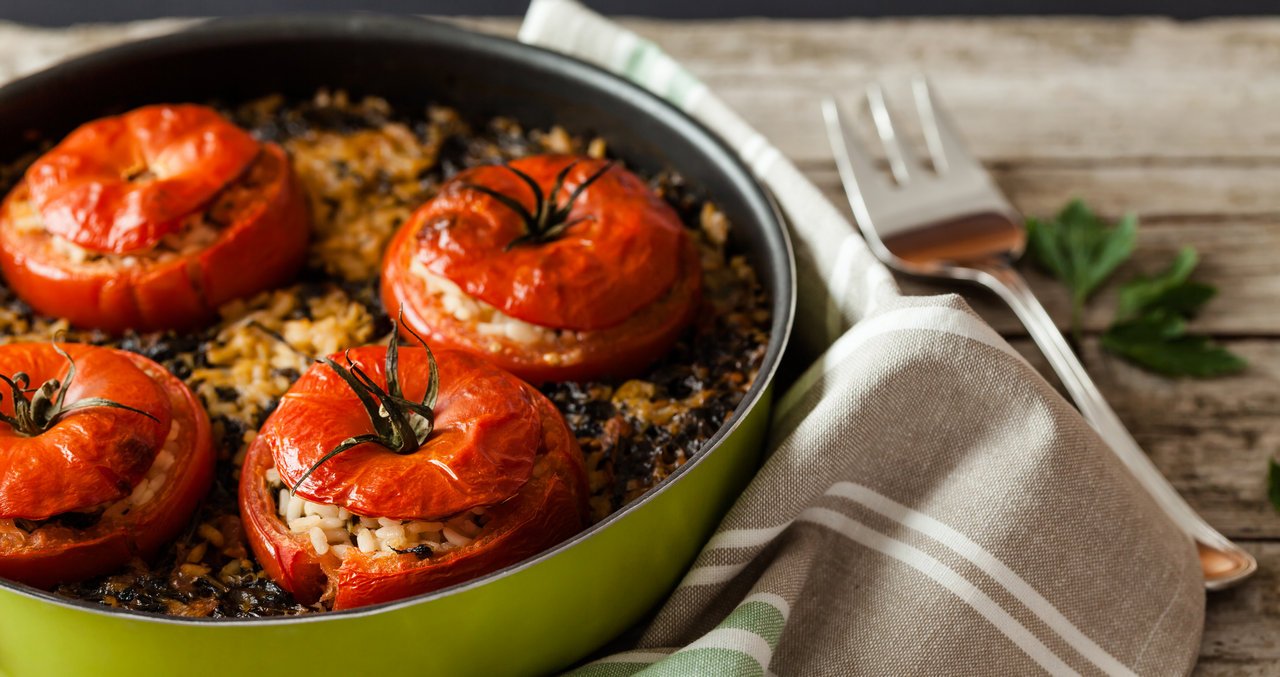Greek Cuisine, a Delicious Journey
Decoding Greek Cuisine: A Journey to Ultimate Well-Being
The Mediterranean diet is known for its health benefits and flavorful dishes made with fresh and healthy ingredients. Greek cuisine epitomizes the renowned Mediterranean diet, celebrated for its many health benefits. Rooted in a foundation of vegetables and olive oil, the Greek diet embodies the quintessential Mediterranean lifestyle. This dietary tradition is an amalgamation of Greece’s culinary heritage and similar eating patterns found in neighboring countries such as Spain, Italy, Malta, Turkey and Lebanon. The commonalities in ingredients and culinary characteristics unite Greek cuisine with that of Mediterranean counterparts such as Spain, Italy, Turkey, Malta, and Lebanon.
The Mediterranean diet is centered on vegetables, fruits, whole grains, legumes, and heart-healthy fats, complemented by a significant amount of fish and seafood. The Greek culinary tradition emphasizes the use of a diverse selection of plant-based foods, including an abundance of fruits, vegetables, whole grains, legumes, nuts, and seeds, with olive oil reigning supreme as the primary source of fat.
Fish, poultry, dairy and the indulgence of red wine are harmoniously integrated, each in moderation, enhancing the holistic nature of Greek cuisine. Rooted in ancient traditions, it’s a gastronomic experience that not only tantalizes the palate, but also strengthens the body.
A wealth of research touts the myriad health benefits of Greek cuisine. It’s been credited with reducing the risk of heart disease, certain cancers, and chronic diseases such as diabetes, while promoting improved cognitive function and longevity. One prominent study, published in the New England Journal of Medicine, revealed that individuals who consumed a diet rich in extra virgin olive oil or nuts – hallmarks of Greek cuisine – had a significantly reduced propensity for major cardiovascular events compared to counterparts on a low-fat diet.
In essence, Greek cuisine is not only a feast for the senses, but a proven catalyst for invigorated health and vitality, painting a compelling portrait of the intrinsic harmony between delicious taste and robust well-being.
Popular Greek Dishes
Greek appetizers

- Horiatiki salad: A refreshing salad made with tomatoes, cucumbers, onions, bell peppers, olives, and feta cheese, dressed with olive oil and lemon juice. This classic Greek salad is a perfect example of the fresh and vibrant flavors of Mediterranean cuisine.
- Tzatziki sauce: A creamy yogurt and cucumber dip seasoned with garlic, dill, and lemon juice, often served with pita bread or as a condiment for various dishes. Tzatziki sauce is a staple in Greek cuisine and adds a cool and tangy element to Mediterranean dishes.
- Fava: A yellow split pea puree seasoned with olive oil, lemon juice, and herbs. It is commonly served as a spread or dip. Fava is a popular appetizer in Mediterranean cuisine and is often enjoyed with warm pita bread.
- Horta refers to a variety of wild, edible greens that are often foraged and are a staple in Greek cuisine. These greens can include various types of leaves, herbs, and flowers, such as dandelion greens, wild chervil, wild chicory, nettles, amaranth leaves, and Swiss chard. Horta is typically served as a simple, healthy dish, often boiled and seasoned with olive oil and lemon juice, providing a mix of bitter and refreshing flavors. Rich in nutrients and vitamins, horta is not only a beloved traditional dish but also a beneficial addition to a balanced diet.
Popular Greek Main Dishes

- Spanakorizo: A traditional Greek dish made with spinach and rice, cooked in a flavorful tomato-based sauce. Spanakorizo is a nutritious and satisfying vegetarian dish that showcases the simplicity and deliciousness of Mediterranean cooking.
- Gemista: Stuffed vegetables, such as tomatoes, bell peppers, or zucchini, filled with a mixture of rice, herbs, and sometimes ground meat, then baked until tender. Gemista is a versatile dish that can be customized with various fillings, making it a crowd-pleasing option for a Mediterranean dinner.
- Fasolada: A hearty white bean soup enjoyed during winter, often made with vegetables, herbs, and olive oil. Fasolada is a comforting and nutritious soup that highlights the use of legumes in Mediterranean cuisine.
Meat Dishes

- Pastitsio: A well-loved baked pasta dish consisting of layers of pasta, ground meat (typically beef or lamb), and a creamy béchamel sauce on top. It is then baked to golden perfection. Pastitsio is a rich and indulgent dish that showcases the influence of Mediterranean cuisine in Greek comfort food.
- Authentic moussaka: A popular summer food known globally, moussaka is a layered dish made with eggplant, potatoes, and ground meat (often lamb) cooked in a rich tomato sauce, topped with a creamy béchamel sauce, and baked until golden and bubbly. Moussaka is a true Mediterranean classic that combines layers of flavors and textures.
- Lamb kleftiko: A traditional Greek dish where lamb is marinated with garlic, lemon juice, and herbs, then slow-cooked until tender and succulent. It can be cooked in the oven or prepared using a pressure cooker. Lamb kleftiko is a show-stopping dish that highlights the use of herbs and slow cooking techniques in Mediterranean cuisine.
- Giouvetsi: A comforting beef and orzo casserole dish, flavored with tomato sauce, herbs, and spices. It is typically baked in the oven, resulting in a flavorful and filling meal, perfect for family gatherings. Giouvetsi is a comforting and hearty dish that showcases the versatility and robust flavors of Mediterranean cooking.
Greek Desserts

- Karidopita: A walnut cake flavored with spices like cinnamon and cloves, soaked in a sweet syrup, and typically served with whipped cream. Karidopita is a traditional Greek dessert that combines rich flavors and textures.
- Loukoumades: Honey donuts that are crispy on the outside and fluffy on the inside, drizzled with honey and sprinkled with cinnamon or chocolate. Loukoumades are a popular Greek dessert that is enjoyed during festive occasions.
- Melomakarona: Festive cookies made with a mixture of flour, olive oil, honey, and spices, then soaked in a sweet syrup and sprinkled with crushed walnuts. Melomakarona are delicious and aromatic cookies that are often enjoyed during the holiday season in Mediterranean countries.
- Galaktoboureko is a well-regarded Greek dessert made of creamy custard encased in crispy phyllo dough, with a finishing touch of citrus syrup. The crust is baked to a golden crisp, providing a textural contrast to the soft custard. The citrus syrup not only enhances its flavor but ensures moisture, offering a balanced taste and texture.
These traditional Greek dishes are just a glimpse into the rich and diverse culinary heritage of the country. Exploring these recipes and incorporating them into your own cooking can be a delightful way to experience the flavors and benefits of the Greek cuisine and the Mediterranean diet.







